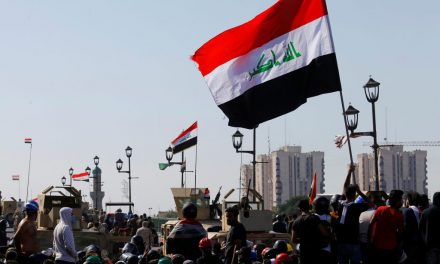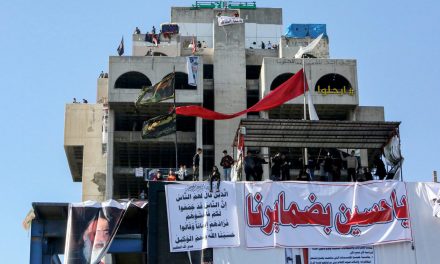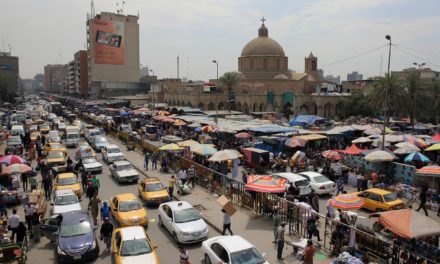It has been a long journey, full of pain and sacrifice, but Iraqi forces are on the precipice of achieving what many said they could not. With the near liberation of Mosul and thereafter the whole of Iraq from the savagery of Daesh, it is useful to reflect on some key lessons:
During my tenure as Iraq’s Ambassador to Japan, I learned through coexistence with the Japanese how a strong social foundation can be a guarantee against the mightiest earthquake or tsunami. The development of resilience and perseverance in the Japanese character is the most important capital for its communities, its government and the state. That strong character was cultivated through ongoing development of educational curriculum and behavioral edicts where their youth learn altruism from their teachers, headmasters and parents above all. This refinement in the caliber of youth leads to the collective development of society toward perfectionism so that Japan, in their eyes, remains as a beacon of development for humanity.
Where are we as Iraqis in focusing our priority on behavioral and then educational system and institutions so that we build Iraqi character, from bottom up, before we focus on the development of our homeland?
Although the United States is more of a continent rather than a single country, with its diverse races, religious denominations and ethnicities, foreigners cannot ignore the importance of the rule of law and its application and adherence within US societies. There we see on one part people with different backgrounds, cultural, national, ethnic, religious denominations, and on the other part we see the collective understanding of the US constitution; rule of laws; adherence to regulations and their belief that the enforcement of rule of law does benefit the individual as well as the collective.
Here the collective believes in diversity as a strength, and their references to the law as judiciary should not be underestimated. Where are we as Iraqis in application of rule of law in our daily lives?
It is said that democracy of Britain is one of the oldest democracies; perhaps the outcome of the Brexit referendum and how society and political system deal with its ramification will be the best test to the strength and resilience of Britain’s democracy. The referendum results did reflect on a very close community split, however what we see is the full respect of all stakeholders to each other and their determination that democracy should be the ultimate arbitrator while they are going through this tough, new unexplored path.
Iraqis can learn a lot from this example if we liberate ourselves from the complexity and causality that we Iraqis are different, unique and cannot learn a great deal from the experiences of other nations.
Peaceful transfer of power is one of the most rewarding and important results of democracy and also one of the best mechanisms for the safe development of society. Here the question of the required formula for development of society comes up, what is the balance for democracy on the one side, and security, safety and well-being of society on the other side? And if this formula is an inverse equation or proportional?
i.e. on the proportional side whenever we apply democracy we get the safety, well-being and greater dignity for the community. On the inverse side, the speed of application of democracy does mean an increase in political chaos and insecurity? Perhaps we do not yet know the meaning of democracy and its requirements for success. Let us learn this together and let us also know that elections only give legitimacy to the winning candidates but his/her credibility to take hold it needs his/her outstanding performance too.
Wisdom says, “Tell me who your companions are, and I will tell you who you are”, when assessing the strategic relations of Iraq with other countries, can we respond fairly and confidently as to who are our strategic partners? And is the state machine, its compass and the Iraqi society as a whole are moving in one direction towards alignment with this or that partner? I think we need to rethink as to the requirements for strategic relations, without which we will not know who should be our companions, and hence for others to know who we are.
Perhaps one of the most common questions I am asked by foreigners is to explain why there is a clear weakness in community development in Iraq, bearing in mind A) the high caliber of so many individuals; B) Iraq’s important geography; C) its civilizational depth; D) its cultural and materialistic wealth; and other elements of sources of power.
One conclusion reached was A) that the Iraqi high caliber is more individual and less collective; B) that the wealth is not invested properly; C) that its unique geography has become a place of greed for another rather than become a point of strength for us. D) finally, that civilization must continue with time not to be intermittent.
To get out of this vicious episode we need to ingrain the collective and teamwork for our development curriculums. Teamwork is an essential pre-condition for development, especially in the era of globalization.
The Iraqi political class has started to prepare for the Council of Representatives and provincial councils elections, will we see a different and realistic electoral programs and manifestos? And will we see ideology as a parameter for screening blocs and parties? And will we see voters break away from their typical pattern of electing people from their clans/nationality/ethnicity and choose the right person to the right job?
God Almighty made us nations and tribes to know each other and to learn from one another, we do need to learn from the British, Japanese and American experiences and other, on the other hand, the argument that we are unique means it will destabilize any objective thinking and leads more toward a vicious circle mindset. We need to understand and learn from others so that the speed of development is aligned with the pace of others while the clock is ticking.
We hope for the birth of a lot of youth projects; concepts; norms; and new positive culture that can help our collective situation to march toward building democratic, positive and harmonious communities.
Happy Nowruz

Lukman Faily
Lukman Faily served as Iraqi ambassador to Japan and the United States.










